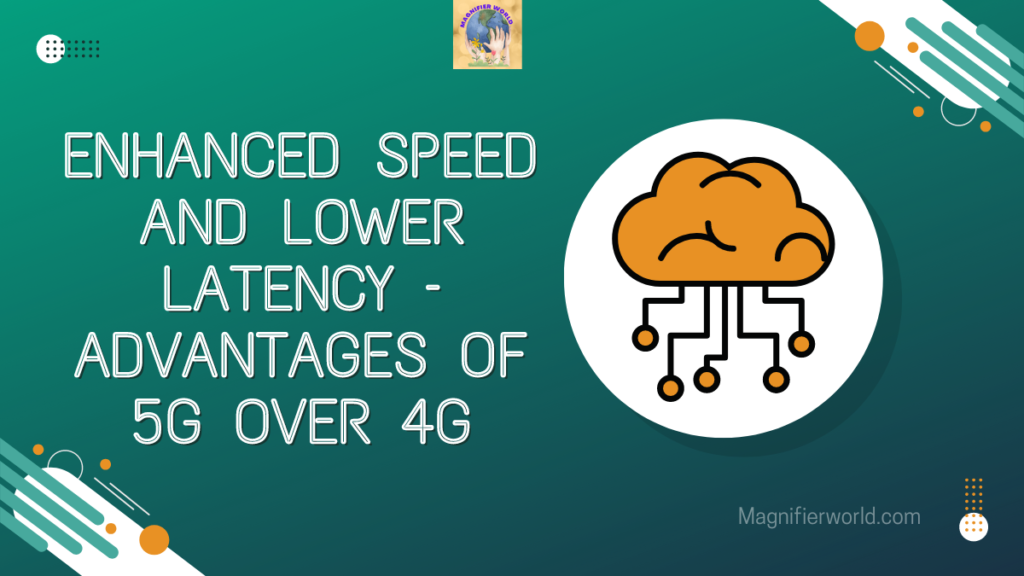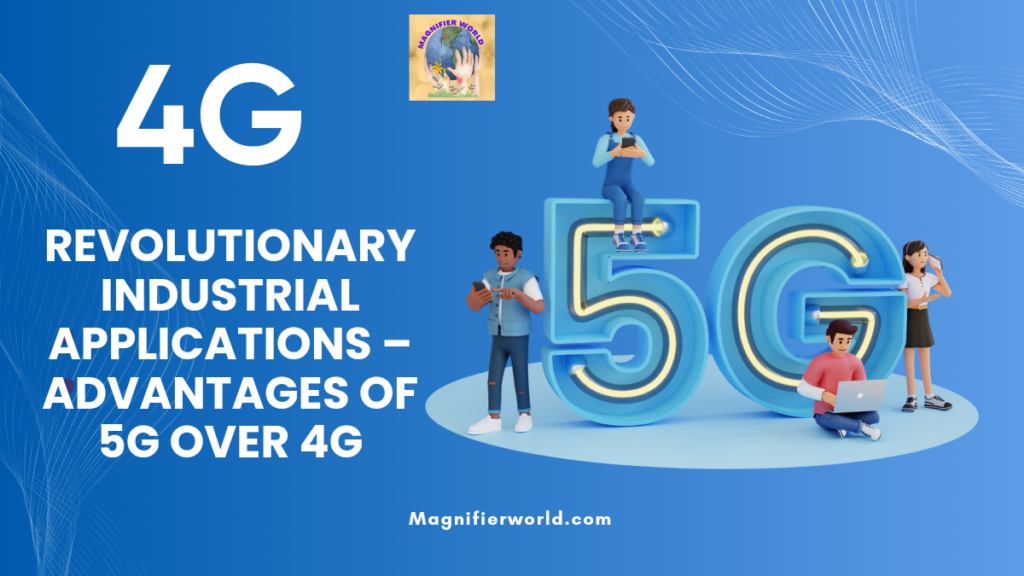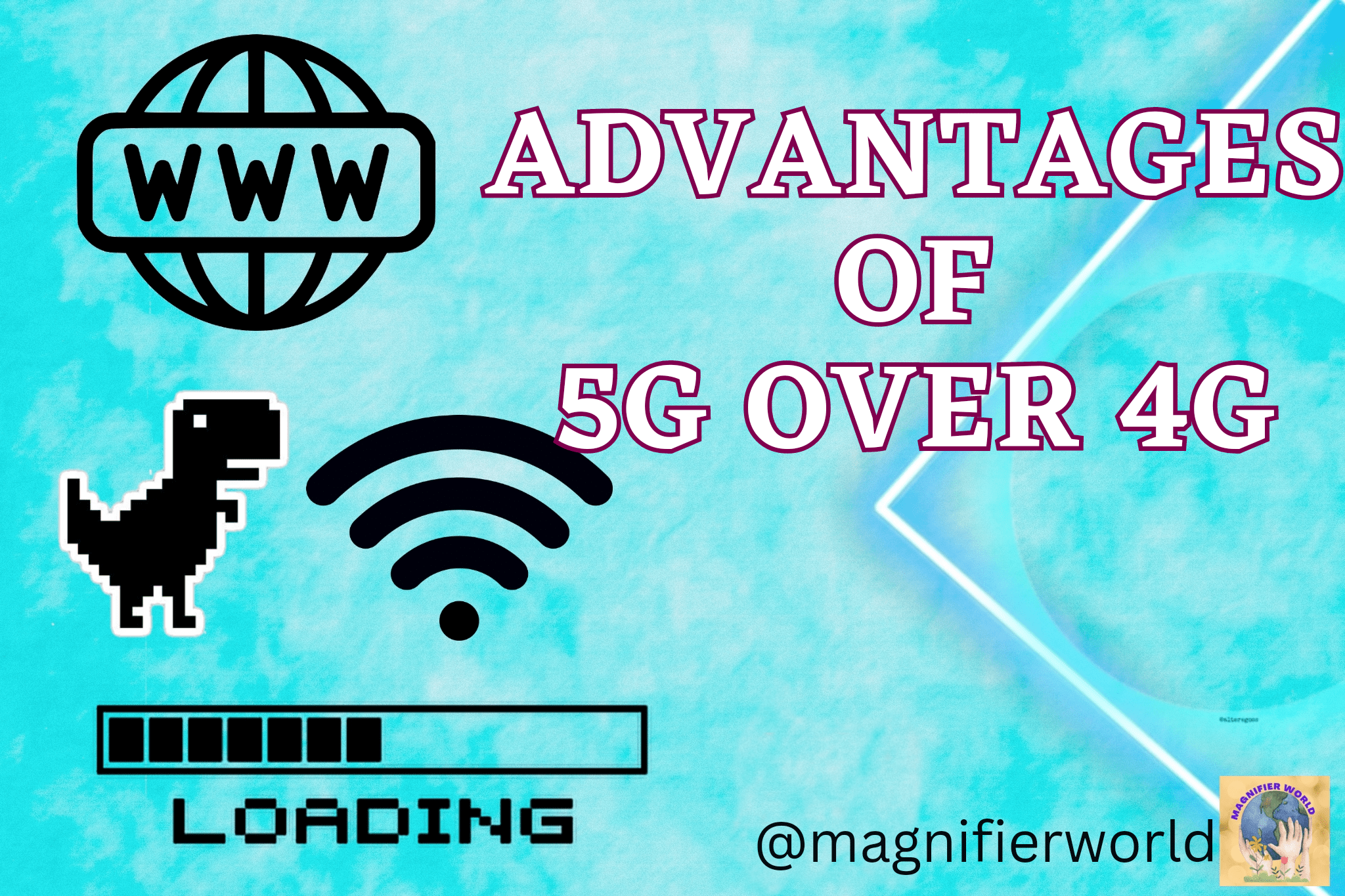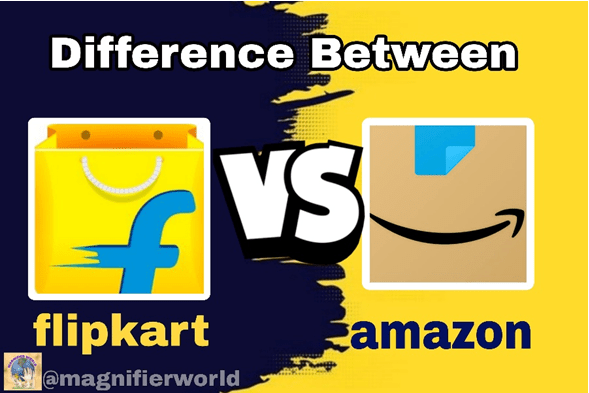What are the advantages of 5G over 4G? Why 5G Supersedes 4G in the Age of Connectivity.
Within the ever-evolving scene of broadcast communications, the entry of 5G innovation has created a critical buzz and expectations. As the successor to 4G, 5G guarantees progressive headways in capacity and network.
5G innovation envoys a new era of networks,where information transmission occurs at exceptional speeds. A seismic move is underway with the approach of 5G innovation.
With guarantees of unparalleled speed, capacity, and network, 5G has risen as a transformative drive that outperforms its predecessor, 4G, in forming the future of communication and innovation.
This article dives into the revolutionary potential of 5G, investigating the reasons why it is set to redefine our digital landscape.
Enhanced Speed and Lower Latency – Advantages of 5G over 4G

One of the foremost surprising highlights of 5G is its extraordinary speed which is the main advantages of 5G over 4G. Compared to 4G’s normal speed of 20 Mbps, 5G can accomplish top speeds of up to 10 Gbps, permitting lightning-fast information exchange.
This exponential increment in speed will change how we connected with innovation, encouraging consistent streaming, high-definition video calls, and quick downloads. Also, 5G boasts essentially lower inactivity than 4G. Inactivity alludes to the time it takes for information to travel between gadgets.
With 5G, idleness can be as low as 1 millisecond, empowering close real-time communication and improving applications like independent vehicles, remote surgery, and augmented reality (AR)/virtual reality (VR) experiences.
Massive Device Connectivity – Advantages of 5G over 4G
The coming of the Internet of Things (IoT) and the expansion of associated gadgets require a network capable of obliging gigantic gadget networks.
Whereas 4G can handle thousands of gadgets per square kilometre, 5G can support a million, much appreciated by its progressed network design and utilization of higher frequency groups.
This illustrates the picture of the advantages of 5G over 4G. This expanded capacity enables the widespread implementation of IoT devices, from smart homes and cities to industrial automation.
With 5G, businesses can optimize operations, reduce costs, and improve efficiency through seamless integration and real-time data exchange across a multitude of devices.
Revolutionary Industrial Applications – Advantages of 5G over 4G

The transformative potential of 5G extends beyond consumer applications. Industries such as manufacturing, healthcare, transportation, and logistics stand to benefit immensely from the deployment of 5G networks.
In manufacturing, 5G enables the implementation of smart factories, where machines communicate with each other, enhancing production efficiency and enabling predictive maintenance.
“Remote-controlled robotics, enabled by low latency and high reliability, can carry out intricate tasks with precision and responsiveness. In healthcare, 5G facilitates telemedicine, enabling remote patient monitoring, diagnosis, and even surgeries performed by skilled surgeons in different locations”.
The network’s high reliability and low latency ensure critical medical data is transmitted in real-time, saving lives and increasing access to healthcare services. 5G also revolutionizes transportation and logistics.
Independent vehicles depend on the low inactivity and instant communication capabilities of 5G to function securely and proficiently. It empowers real-time activity administration, diminishing congestion and improving street security.
Moreover, logistics companies can utilize 5G-powered systems for real-time tracking, optimizing supply chains, and improving delivery accuracy.
Unlocking the Potential of AR/VR and Gaming

5G technology provides a transformative boost to immersive technologies such as AR, VR, and cloud gaming.
The high speeds, low latency, and massive device connectivity of 5G enable seamless and immersive experiences that were previously unattainable with 4G. In AR, 5G allows for the real-time rendering of complex virtual elements into the real world.
- This opens up opportunities for applications in education, training, design, and entertainment, enhancing user experiences and fostering innovation.
- VR experiences become more immersive and interactive with 5G. Users can stream high-resolution content and engage in multiplayer VR gaming without experiencing lag or buffering.
- The low inactivity and high-speed network of 5G guarantee a consistent and responsive VR involvement, unlocking modern conceivable outcomes in entertainment and collaboration.
- Cloud gaming, which depends on streaming games over the web, is balanced to revolutionize the gaming industry with the coming of 5G.
- Gamers can appreciate high-definition, console-like gaming experiences on their versatile gadgets without the need for powerful equipment. The low latency of 5G ensures minimal input lag, providing a smooth and responsive gaming experience even in multiplayer scenarios.
Economic and Societal Impact – Advantages of 5G over 4G
The broad arrangement of 5G systems has far-reaching economic and societal implications. It is anticipated to drive advancement, make new commerce openings, and fuel financial development.
As industries grasp the transformative capabilities of 5G, they will pick up a competitive edge, boost efficiency, and open new income streams. The integration of 5G into smart cities will enhance efficiency, sustainability, and quality of life.
From intelligent traffic management and optimized energy consumption to improved public safety and healthcare services, 5G will enable cities to become more connected and responsive to the needs of their residents.
“The appearance of 5G too brings openings for bridging the digital divide. By giving high-speed, dependable networks to underserved zones, 5G can upgrade access to instruction, healthcare, and data, empowering people and communities”.
Energy Efficiency and Sustainability
Other significant advantages of 5G over 4G is its improved energy efficiency, which contributes to a more sustainable future. As the world becomes more conscious of environmental impact, the energy consumption of telecommunication networks plays a crucial role. Compared to 4G, 5G systems are outlined to be more energy-efficient.
- This effectiveness is accomplished through different means, such as progressed network engineering, more brilliant rest modes for gadgets, and the capacity to powerfully adjust power utilization based on request.
- As a result, 5G networks can deliver higher data speeds while consuming less energy per byte of data transmitted. The reduced energy consumption of 5G networks not only contributes to cost savings for operators but also lowers carbon emissions and environmental footprint.
- With the anticipated massive deployment of 5G infrastructure, the cumulative energy savings on a global scale can be substantial. Furthermore, the energy efficiency of 5G enables the integration of sustainable technologies and practices in various industries.
- For example, in smart cities, 5G can facilitate intelligent energy management systems, optimize resource usage, and enable real-time monitoring of energy consumption. This can lead to more sustainable urban environments and a reduced carbon footprint.
By grasping 5G innovation, we are able to tackle its vitality effectiveness capabilities to make a more feasible and eco-friendly future, supporting worldwide efforts towards moderating climate change and advancing natural stewardship.
Challenges and Considerations
While 5G offers tremendous potential, there are challenges and considerations to address. Infrastructure deployment, including the installation of small cells and the densification of networks, is necessary to ensure comprehensive coverage and support the massive device connectivity promised by 5G.
Cybersecurity is another crucial aspect that needs attention. As more devices and systems become interconnected, ensuring the security and privacy of data becomes paramount.
“Collaboration between industry stakeholders, policymakers, and regulatory bodies is essential to establish robust security measures”.
Conclusion
The advantages of 5G over 4G technology represent a monumental leap in connectivity and technological progress. With its unprecedented speed, massive device connectivity, and transformative potential across industries, 5G surpasses the capabilities of 4G.
From enhancing consumer experiences to enabling revolutionary industrial applications, 5G opens up new frontiers of innovation, collaboration, and economic growth.
As we grasp the 5G transformation, it is vital to address challenges such as infrastructure deployment and cybersecurity to unlock the total potential of this groundbreaking innovation.
With its far-reaching impact on industries, society, and lifestyle 5G is balanced to shape the long-term network and drive us towards a more associated, intelligent, and dynamic world.
The above points clear the scene of the advantages of 5G over 4G.




